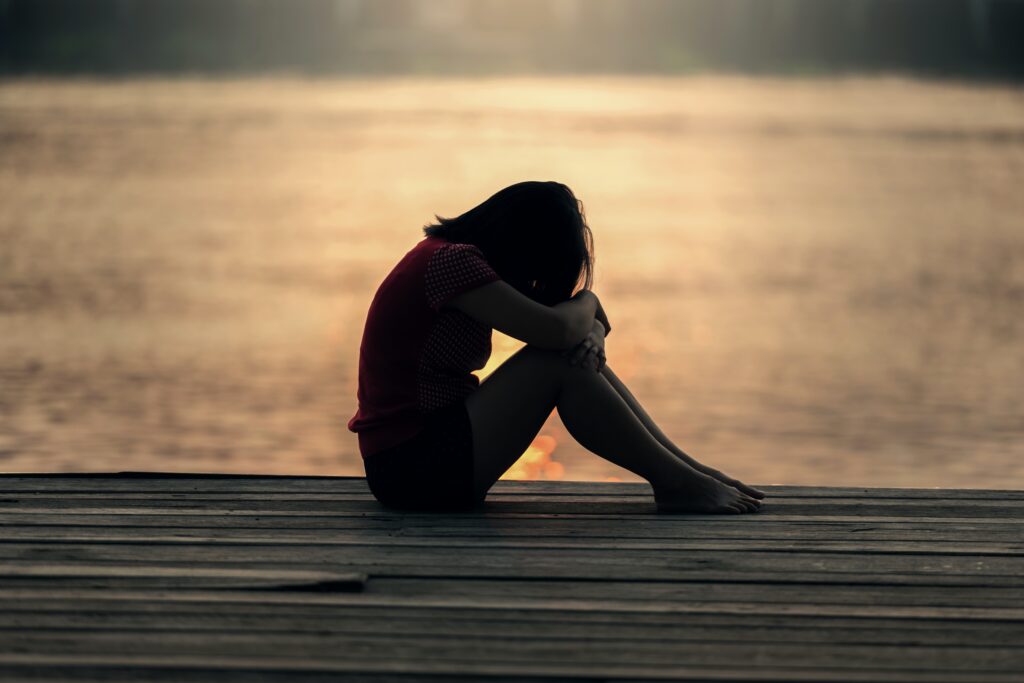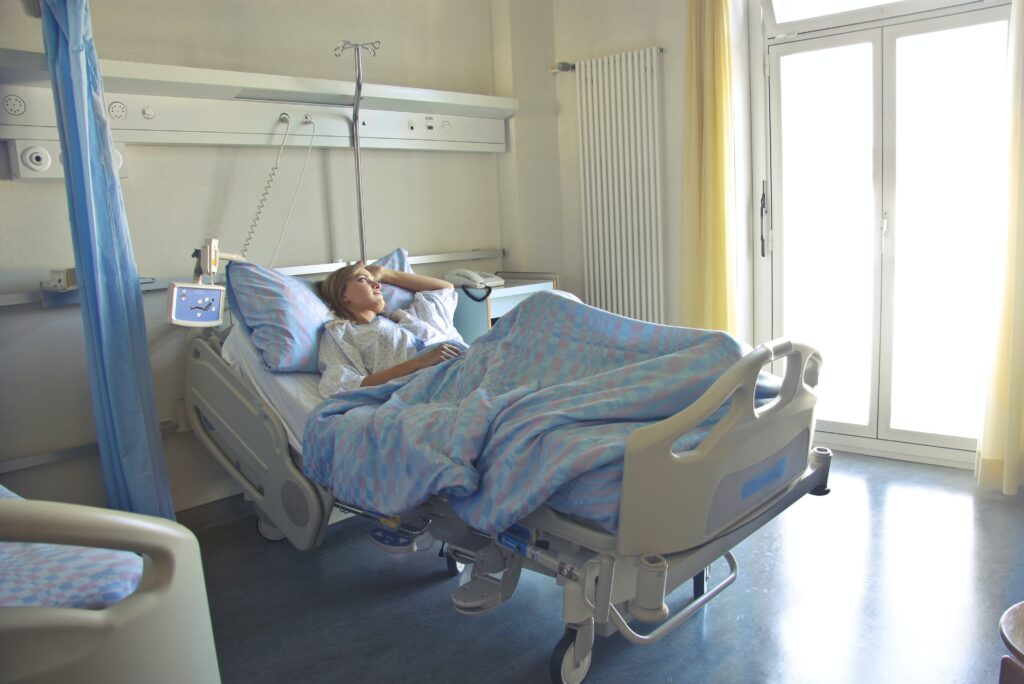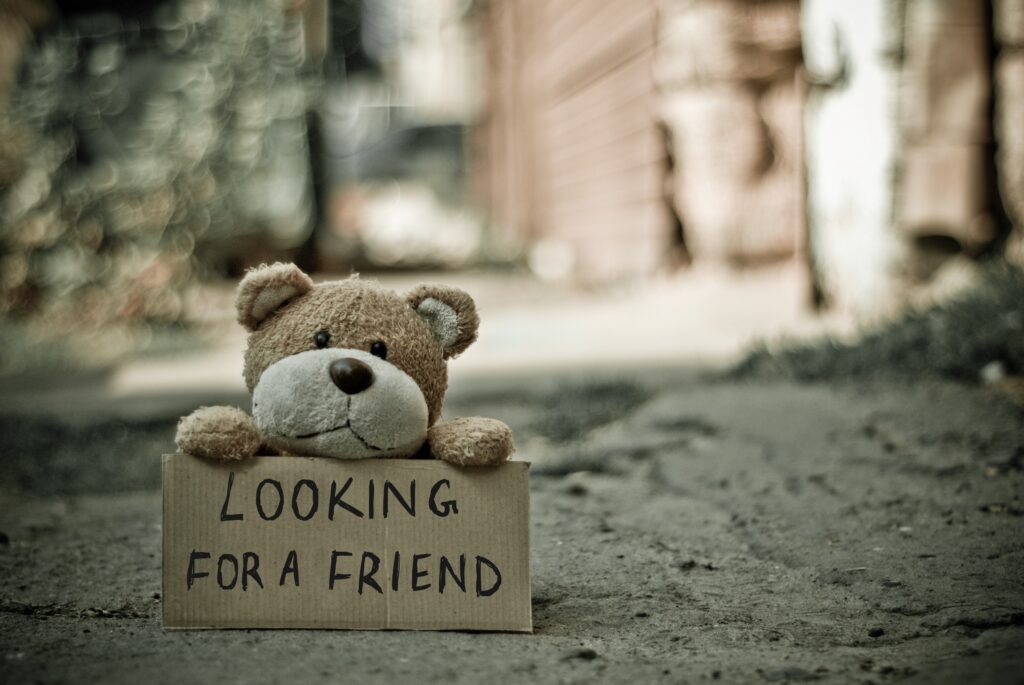How Your Childhood Trauma Shapes How You See the World

Hey, Psych2Goers! Thanks for joining us for another article! Have you experienced any trauma in your childhood? It’s okay; me too. Childhood trauma is any life threatening, scary, or violent experiences that happen to those 18 years old or younger. I don’t know about you, but I’ve noticed that it’s caused me to approach certain situations differently. It’s caused me a few problems, too. Let’s take a look at how your childhood trauma shapes how you see the world.
Side Note: This article is for educational and informative purposes only. This article is not intended to be used in place of a mental health professional or diagnose childhood trauma. If you believe you have experienced childhood trauma, please reach out to a trusted mental health professional.

You may be a “cup half empty” kinda guy or gal.
Childhood trauma can come in all shapes, sizes, and severities. Some examples can be a loved one lying to you, leaving, not reciprocating love, or literal abuse. When these events are experienced at such a young age, this can potentially shape the way you view future events from a more pessimistic view. Take the musical “Annie”. Her parents left her at an orphanage at a very young age. On top of that, the orphanage owner, Miss Hannigan, treated her and the other orphans like free labor. As she grew, she fantasized about the day when her parents would come back for her, but it never happened. Any time someone came to pick a child to adopt, Annie always took it personally. Because her own parents didn’t want her and Miss Hannigan is always putting her down, Annie felt like there was something wrong with her, and no one will EVER want her. If Daddy Warbucks hadn’t come into the picture when he did, it’s very possible that Annie would have lost her optimism. This trauma that she’s experienced has shown her this is how she’s meant to be treated. This also shows her how she “should expect” new people she meets to treat her.
Now, is this true? Absolutely not! Annie is a bright, wonderful, and caring young woman whose parents had passed without any other family to care for her. This is a great example of how childhood trauma can really promote pessimism later in life.

You may feel limited in the world due to your medical conditions – both mental and physical.
As human beings, our brains find ways of coping with traumatic experiences. Childhood trauma, unfortunately, is a large cause of mental illness later in life. According to Baumeister, Akhtar, Ciufolini, Pariante, and Mondelli, this can include anxiety, depression, psychosis, and even Post Traumatic Stress Disorder. These researchers also found that childhood trauma can also promote physical health conditions, too. Some of these conditions can include lung disease, cardiovascular disease, arthritis, high blood pressure, high blood sugar, and even cancer. Because of your different medical conditions, you may see the world with caution tape. Let’s say a childhood event left you with PTSD and anxiety. This alone may make the individual avoid certain events or situations that can cause them panic. Gastrointestinal diseases, such as acid reflux and Irritable Bowel Syndrome (IBS), are commonly associated with anxiety and PTSD. If this individual has IBS, this may cut out more types of situations, food they can have, or even a cut off for how late they can be out. This also plays into the pessimism we discussed in our first point. This is all due to the original trauma experienced.
This is why it’s incredibly important that we keep up with our physical health, just as much as our mental health. (Did you have your physical this year? This is your friendly reminder to make your annual doc appointments. We got you!)

You feel like no one sticks around.
When you’re a child, you learn to develop your attachment style. Typically, you learn your attachment style through your relationship with your parents, since they’re some of the first people around during early childhood. There are three attachment styles: Dismissive Avoidant, Fearful Avoidant, and Anxious Preoccupied.
Meet Sam! They have a mom who they believe to have both Narcissistic and Borderline Personality Disorders. The mom would shower Sam with affection and praise when they were getting As in school or if they were bragging about Sam to other parents. However, if Sam did anything without my parent in mind, Sam would be told that I’m selfish and inconsiderate. Because of this, Sam is constantly scared that their partner will leave. They constantly need to know they’re loved. Even though Sam may know they’re loved, they’re used to on again/off again love, so it’s hard to believe the consistency. Sam felt like they weren’t loved for who they are, they were “loved” only for what they do.

You feel like you’re struggling to function in the world.
I have an amazing friend! For privacy, we’ll call her Julia. Julia has a full-time job, has two teenage daughters, goes on adventures, is always there for her friends, and even finds a way to sneak in a daily gym session while getting a delicious dinner on the table. How she makes time for self-care and herself, it’s beyond me! Like I said, she’s incredible! She has everything together and a plan for everything. Me on the other hand, I’m, what you might call, a hot mess.
I have two jobs, but I feel like I’m stumbling through life nowadays. I blur through the day from one job to the next, and somehow throw chores and cooking in. It’s usually lackluster and obviously rushed. I usually end up having to skip the work-out sesh, because I simply don’t have time for everything. I don’t know where I put things, and I can never remember important details from one day to the next. This is a form of disorganization and can be learned through childhood trauma. Part of my childhood trauma involved an authoritarian parent who always told me what to do at every moment. This disorganization is the result of not having that constant instruction and not having developed scheduling or prioritizing skills. Not having certain skills as an adult can definitely make you feel like your struggling all due to childhood trauma.
Our childhood really does set us up for the rest of our lives. Good habits and healthy relationships can set you up for a healthy life – both emotional and physical. Without the positive set up, the unhealthy and potentially toxic qualities and habits can grow into a true problem in adulthood. Do you recognize any of these signs in your own life? Leave a 🌎 in the comments! Do you know someone who has these outlooks? Let us know down below. As always, keep an eye on Psi for more Psych2Go content!
Think you may have experienced childhood trauma? Check out 9 Signs You’re Dealing With Childhood Trauma!
The references used in and to compose this article are listed below:
Baumeister, D., Akhtar, R., Ciufolini, S., Pariante, C. M., & Mondelli, V. (2015). Childhood trauma and adulthood inflammation: A meta-analysis of peripheral C-reactive protein, interleukin-6 and tumour necrosis factor-α. Molecular Psychiatry, 21(5), 642–649. https://doi.org/10.1038/mp.2015.67
Loggins, B. (2022, January 26). Childhood trauma in adults: How to recognize and heal from it. Verywell Mind. Retrieved May 18, 2022, from https://www.verywellmind.com/signs-of-childhood-trauma-in-adults-5207979
Mental Health Center at Destination Hope. (2019, April 3). How childhood trauma affects us as adults: Mental health. Mental Health Center. Retrieved May 18, 2022, from https://www.mentalhealthcenter.org/how-childhood-trauma-affects-adult-relationships/
Morin, A., & Janssen, A. (2022, March 17). Alleviating childhood trauma. Verywell Mind. Retrieved May 18, 2022, from https://www.verywellmind.com/what-are-the-effects-of-childhood-trauma-4147640
Northwestern University Feinberg School of Medicine. (2020, June 22). What is child trauma? Center for Child Trauma Assessment and Service Planning. Retrieved May 18, 2022, from https://cctasi.northwestern.edu/child-trauma/
Zlotnick, C., Johnson, J., Kohn, R., Vicente, B., Rioseco, P., & Saldivia, S. (2008). Childhood trauma, trauma in adulthood, and psychiatric diagnoses: results from a community sample. Comprehensive psychiatry, 49(2), 163–169. https://doi.org/10.1016/j.comppsych.2007.08.007



Responses